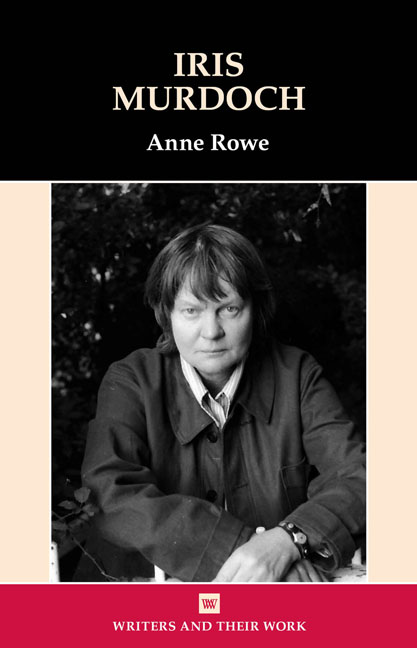Book contents
- Frontmatter
- Dedication
- Contents
- Acknowledgements
- Biographical Outline
- Abbreviations
- Introduction: Iris Murdoch (1919–1999)
- 1 A Writing Life: 1954–1995
- 2 Writing the Novel of Ideas: The Philosopher and Public Intellectual
- 3 Writing Sacraments: The Holy Atheist
- 4 Writing ‘A New Vocabulary of Experience’
- 5 Writing the Landscape: The Island of Spells and the Sacred City
- Afterword: ‘Onward!’
- Notes
- Select Bibliography
- Index
1 - A Writing Life: 1954–1995
- Frontmatter
- Dedication
- Contents
- Acknowledgements
- Biographical Outline
- Abbreviations
- Introduction: Iris Murdoch (1919–1999)
- 1 A Writing Life: 1954–1995
- 2 Writing the Novel of Ideas: The Philosopher and Public Intellectual
- 3 Writing Sacraments: The Holy Atheist
- 4 Writing ‘A New Vocabulary of Experience’
- 5 Writing the Landscape: The Island of Spells and the Sacred City
- Afterword: ‘Onward!’
- Notes
- Select Bibliography
- Index
Summary
‘When I have finished a novel IT, not I, is telling ITS story, and one hopes that it will – like some space-probe – go on beaming its message, its light, for some time’
Inspired by childhood readings of Treasure Island with her beloved father, Murdoch began writing when she was around nine-years-old. Aged seventeen, when asked what she wished to do in life, she was already emphatic: ‘write’. By her early twenties she was producing serious fiction and wrote three novels in the early 1940s, but none were published. Early setbacks, including the rejection of a manuscript by T.S. Eliot at Faber & Faber in 1944, knocked her confidence, and a sometimes debilitating insecurity battled with a principled belief in the value of her work throughout her writing life. The manuscript of her first published novel Under the Net (1954) was posted to the talent scout for Viking, Gwenda David, anonymously, and even after its startling success she was insecure about The Flight from the Enchanter (1956), writing to her editor at Chatto, Norah Smallwood, apologizing for ‘shortcomings’: ‘if you think it's no good please don't mind saying so at once’ (LOP 171). She gained her stride, though, after the publication of The Sandcastle a year later, demonstrating an obstinacy regarding any editing of her work, for which she was later to become famous. Thanking her American editor, Marshall Best, for several pages of recommended changes, ‘considered with great care’, she refused to comply with any of his suggestions (LOP 176).
The speed at which one novel followed another thereafter illustrates both her conviction that she could write and her enduring desire to do better. Her prodigious output was sometimes disparaged by critics and Murdoch herself was aware of the dangers of what appeared to be an over-zealous productivity. She both mocks and endorses that productivity herself at the peak of her powers in The Black Prince (1973) in which her first-person, writer-narrator, Bradley Pearson, a perfectionist who suffers a longstanding writer's block, is both envious and damning of the work of his fellow writer, Arnold Baffin, who produces hugely successful books of the same type, and with the same rapidity, as Murdoch herself.
- Type
- Chapter
- Information
- Iris Murdoch , pp. 9 - 40Publisher: Liverpool University PressPrint publication year: 2019

